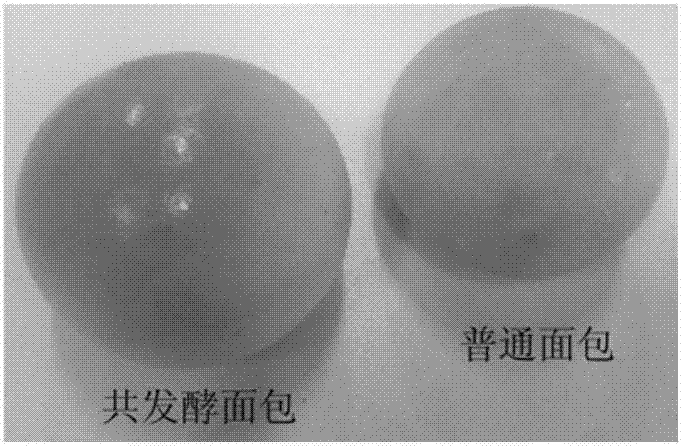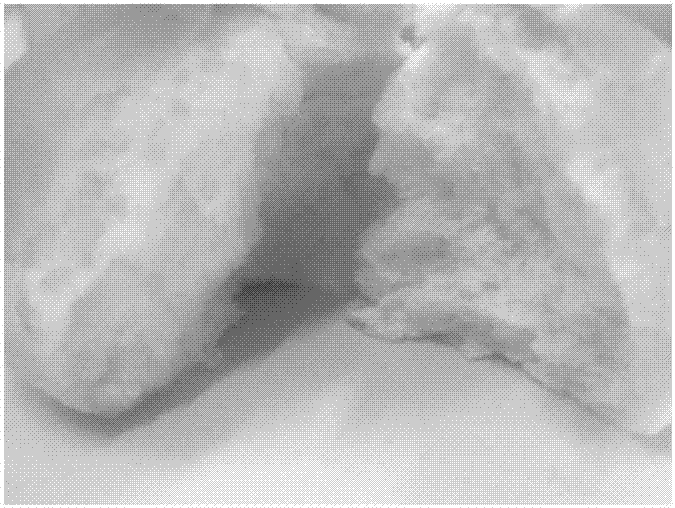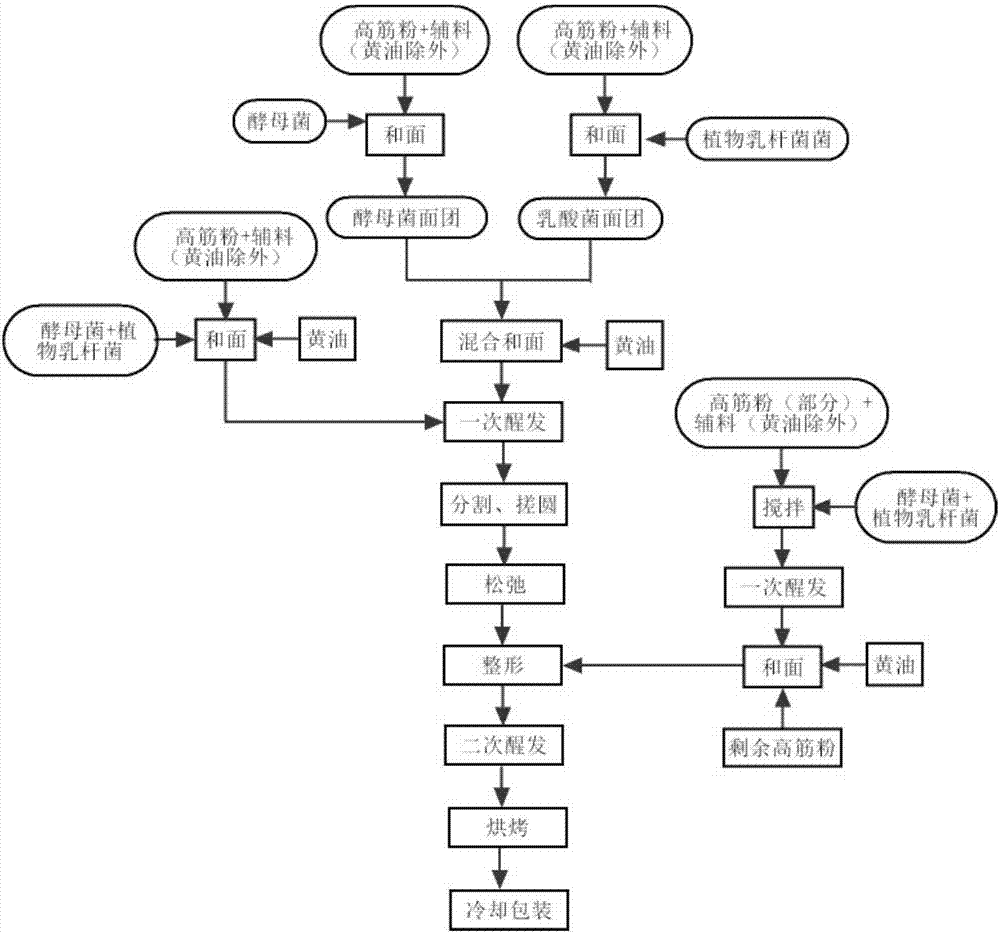Lactic acid bacterium and saccharomycete co-fermented bread and production method thereof
A production method and yeast technology, applied in dough preparation, pre-baked dough processing, baking, etc., can solve the problems of lack of bread aroma and not pure taste in bread, so as to be beneficial to digestion and absorption and health care, increase nutritional value, Effect of increasing content and bioavailability
- Summary
- Abstract
- Description
- Claims
- Application Information
AI Technical Summary
Problems solved by technology
Method used
Image
Examples
Embodiment 1
[0045] Lactic acid bacteria and yeast co-fermented bread, in parts by weight, comprising:
[0046]
[0047] A method for producing bread co-fermented by lactic acid bacteria and yeast. The dough is co-fermented by Lactobacillus plantarum and yeast, and the bread is produced by a secondary proofing method. The specific steps are as follows:
[0048](1) Kneading dough: Weigh high-gluten flour, auxiliary materials, yeast and Lactobacillus plantarum into the kneading machine according to the formula, mix evenly at low speed, add eggs and water and beat at low speed and then at medium speed until there is no powdery substance in the kneading tank , then turn to high speed, add butter when beating until the dough is smooth, continue beating until the surface of the dough is shiny, non-sticky, and can pull out a translucent gluten film;
[0049] (2) One-time proofing: put the beaten dough in a proofing box to proof for 30 minutes, and control the temperature of the proofing box to...
Embodiment 2
[0057] Lactic acid bacteria and yeast co-fermented bread, in parts by weight, comprising:
[0058]
[0059] The production method of lactic acid bacteria and yeast co-fermented bread, the lactobacillus plantarum dough and the yeast dough are fermented separately, mixed and dough is proofed for the second time to produce bread, the specific steps are as follows:
[0060] (1) Preparation of yeast fermented dough: Weigh 4 / 5 parts by weight of high-gluten flour, yeast, 4 / 5 parts by weight of water and auxiliary materials, without adding butter, and whip until a smooth and non-sticky dough is formed. Place the beaten dough in a proofing box to proof for 40 minutes, and control the temperature of the proofing box to 35°C and the relative humidity to 70%. Until the dough expands to 1.5 times the volume of the original dough.
[0061] (2) Preparation of lactic acid bacteria fermented dough: Weigh the remaining high-gluten flour, Lactobacillus plantarum, and remaining water into a ...
Embodiment 3
[0071] Lactic acid bacteria and yeast co-fermented bread, in parts by weight, comprising:
[0072]
[0073]
[0074] The production method of lactic acid bacteria and yeast co-fermented bread, the dough fermented by Lactobacillus plantarum is added with yeast and other raw materials for secondary kneading, and the secondary fermentation method is used to produce bread. The specific steps are as follows:
[0075] (1) Stirring: Accurately weigh 1 / 5 parts by weight of high-gluten flour and auxiliary materials other than butter, active dry yeast, Saccharomyces cerevisiae, Lactobacillus plantarum, pour into the dough mixer, and stir until the batter has a uniform texture;
[0076] (2) One-time proofing: Put the evenly stirred batter into the proofing box, control the temperature of the proofing box at 35°C, and the relative humidity at 80%, and proof for 40 minutes until the batter expands to 1.5 times the volume of the original dough;
[0077] (3) Kneading the dough: take ou...
PUM
 Login to View More
Login to View More Abstract
Description
Claims
Application Information
 Login to View More
Login to View More - R&D
- Intellectual Property
- Life Sciences
- Materials
- Tech Scout
- Unparalleled Data Quality
- Higher Quality Content
- 60% Fewer Hallucinations
Browse by: Latest US Patents, China's latest patents, Technical Efficacy Thesaurus, Application Domain, Technology Topic, Popular Technical Reports.
© 2025 PatSnap. All rights reserved.Legal|Privacy policy|Modern Slavery Act Transparency Statement|Sitemap|About US| Contact US: help@patsnap.com



